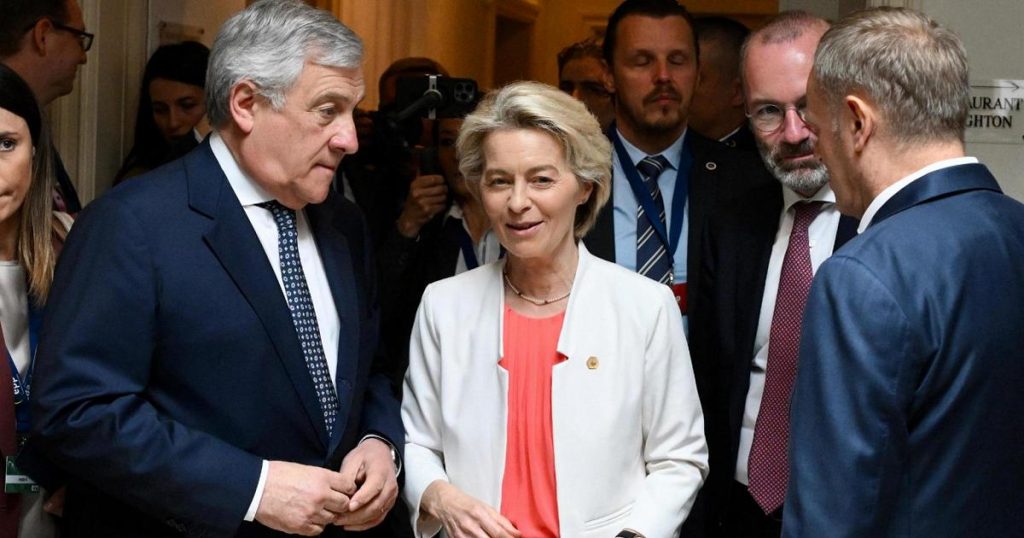Negotiations for the selection of new EU leadership positions are ongoing, with no agreement yet in place. However, following an informal summit, President of the European Council Charles Michel expressed optimism, stating that steps in the right direction have been taken. He emphasized the importance of reaching an agreement by the end of June. Leaders returned home to discuss proposals internally, with a final decision expected on June 27. The focus of the summit was on the winners and losers of the recent European elections, with discussions centered around forming a broader majority alliance to protect against potential dissenters.
The aftermath of the summit revealed a shifting political landscape within the EU, with the forces of the center—populists, socialists, and liberals—potentially expanding to include the Greens. This alliance seeks to secure important leadership positions within the Union. Hungarian Prime Minister Viktor Orban, who recently pivoted from the EPP to the Conservatives, voiced strong objections to the developments at the summit. He accused the mainstream parties of ignoring the will of the European people and forming alliances that do not reflect the election results. Orban pledged to unite right-wing forces against pro-immigration bureaucrats.
Italian Prime Minister Giorgia Meloni left the summit in Brussels with a determined stance to secure favorable positions for Italy within the future European Commission. However, her negotiations have faced challenges, as she seeks to maintain a dialogue with pro-European factions without compromising her own political positions. Meloni’s interactions with leaders of other political groups have been marked by delays and frustrations, reflecting a discordant negotiation process. She faces uncertainties regarding potential portfolios and must navigate complex alliance dynamics within the EU.
Italian officials have demanded assurances before committing to support the proposed candidates for top EU positions. Meloni is particularly focused on securing a high-level commissioner post that aligns with Italy’s interests. Rumors suggest possible candidates for key roles in the Commission, with Daniele Franco and Elisabetta Belloni emerging as popular choices. As negotiations progress, Meloni remains vigilant in her pursuit of favorable outcomes for Italy and its representation within the EU leadership.
The negotiation process has seen various conservative leaders engaging in separate discussions to explore potential alliances and positions within the EU. Meloni has met with key figures such as former Polish Prime Minister Mateusz Morawiecki and Hungarian Prime Minister Viktor Orban as part of her strategy to secure support for her initiatives. The formation of a united front of right-wing parties remains a possibility, although challenges and disagreements persist among conservative factions. Meloni’s approach to the negotiations reflects Italy’s commitment to maximizing its influence and representation within the EU.
Despite evolving dynamics and challenges, negotiations for EU leadership positions are progressing swiftly, with a projected conclusion by July. The informal summit was preceded by intensive discussions among negotiators, signaling a fast-paced negotiation process. However, concerns about a lack of respect and discord among leaders have emerged, highlighting the complexities involved in forming alliances and reaching agreements. Meloni’s quiet demeanor during the summit, coupled with ongoing controversies within the Italian government, present additional challenges as she seeks to navigate the complex landscape of EU leadership negotiations.














